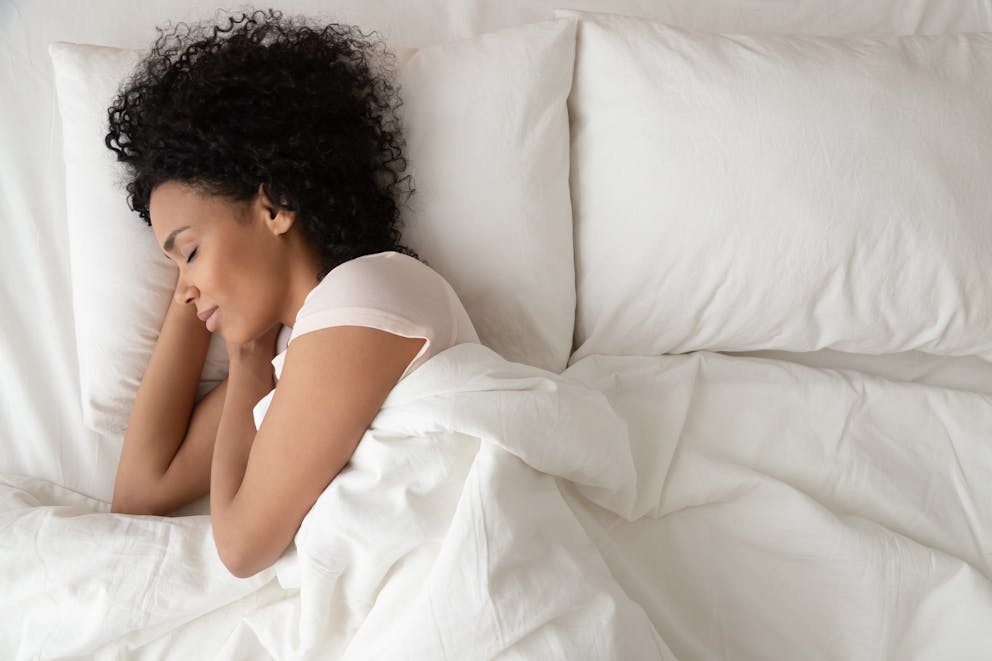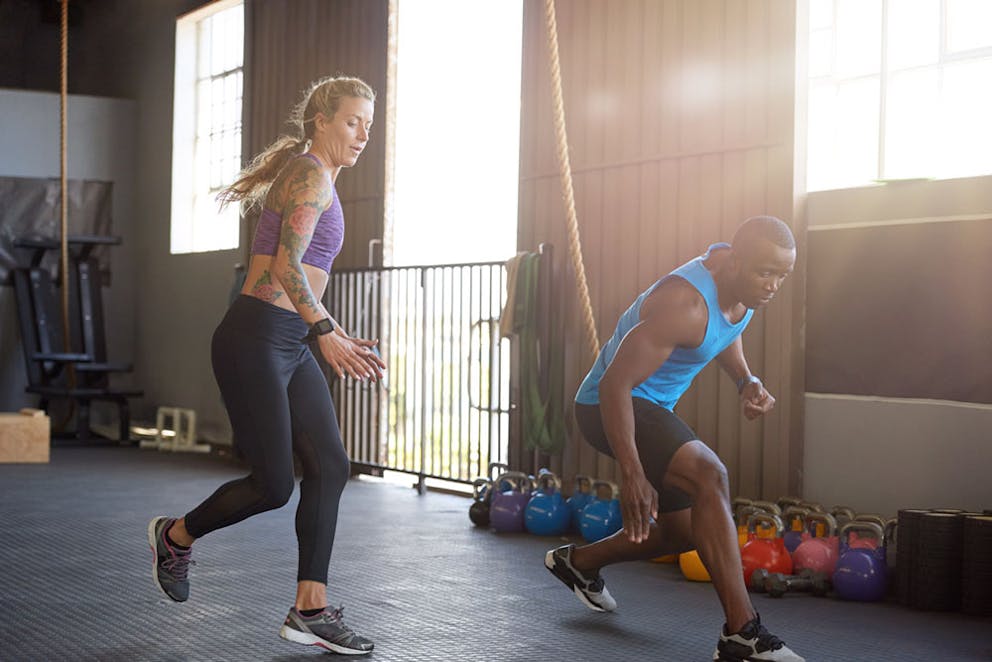Is Exercise Good or Bad for Sleep
You hit the gym, break a sweat, and feel like a million bucks. But when your head hits the pillow, you're wide awake. What gives? I've been there, and I know how frustrating it can be.
The connection between exercise and sleep is a tricky one, but it's so important to get right. Because when you do, it's a game-changer.
I want to tell you a secret: the key to a great night's sleep might just be hidden in your workout routine. Sounds counterintuitive, right? But hear me out. There's a science to this, and once you crack the code, you'll be sleeping like a baby and waking up ready to take on the world.
The Impact of Exercise Timing on Sleep Quality
When it comes to getting a good night's sleep, the timing of your workouts can make all the difference. While regular physical activity is essential for overall health and well-being, exercising too close to bedtime may disrupt your sleep patterns.
On the other hand, morning workouts have been shown to positively impact sleep quality, especially for those who are sensitive to high-intensity exercise. Let's take a closer look at how the timing of your exercise routine can affect your sleep.

Morning Workouts and Their Benefits for Sleep
Physical activity early in the day can work wonders for your sleep quality. According to a study published in the journal Sleep Medicine, morning exercise was associated with better sleep quality and longer sleep duration than evening exercise.
One reason for this is that morning workouts help regulate your body's internal clock or circadian rhythm. By exposing yourself to natural light and getting your heart rate up early in the day, you're sending a clear signal to your body that it's time to be awake and alert.
This can help you feel more energized throughout the day and make it easier to wind down and fall asleep at night. Additionally, morning exercise can help reduce stress and anxiety, which are common culprits of sleep problems.
The Drawbacks of Late-Night Exercise
While some people may find that exercising in the evening helps them relax and unwind before bed, for others, it can have the opposite effect.
High-intensity workouts close to bedtime can increase your heart rate, body temperature, and adrenaline levels, making it harder to fall asleep.
According to the Sleep Foundation, vigorous exercise within one hour of bedtime can disrupt sleep onset and quality. Exercise stimulates the release of endorphins, which can leave you feeling energized and alert rather than relaxed and ready for sleep.
If you're someone who struggles with insomnia or other sleep disorders, it's best to avoid intense physical activity in the hours leading up to bedtime. Instead, opt for gentle stretching or relaxation techniques to help calm your mind and body before sleep.
Exercise Intensity and Its Relation to Sleep Disorders
The intensity of your workouts can also play a role in how well you sleep at night. While moderate aerobic exercise has been shown to improve sleep quality and reduce symptoms of sleep disorders, high-intensity physical activity can sometimes have the opposite effect.
Aerobic Exercise as a Remedy for Poor Sleep
If you're struggling with poor sleep quality or a sleep disorder like insomnia, incorporating regular aerobic exercise into your routine may help. A meta-analysis of 66 studies found that aerobic exercise, such as walking, jogging, or cycling, can significantly improve sleep quality and reduce insomnia symptoms.
Moderate aerobic exercise helps regulate your body's sleep-wake cycle by increasing the amount of slow-wave sleep, also known as deep sleep. This is the stage of sleep when your body repairs and regenerates tissues, builds bone and muscle, and strengthens your immune system.
Aim for at least 30 minutes of moderate aerobic exercise most days of the week to reap the sleep-promoting benefits. Just be sure to finish your workout at least a few hours before bedtime to give your body time to wind down.
High-Intensity Physical Activity's Double-Edged Sword
While vigorous exercise can certainly benefit, it's important to be mindful of how it may impact your sleep. High-intensity workouts, such as sprinting, weightlifting, or high-intensity interval training (HIIT), can activate your adrenals and release stress hormones like cortisol.
For some individuals, this can lead to disrupted sleep patterns and difficulty falling asleep at night.
According to a study published in the Journal of Clinical Sleep Medicine, vigorous exercise performed within 1 hour of bedtime was associated with poorer sleep quality than no exercise.
However, this doesn't mean you have to avoid high-intensity workouts altogether. The key is to find the right balance and timing that works for your body.
If you enjoy vigorous exercise, aim to finish your workout at least 3 hours before bedtime to give your body time to recover and relax.
Age, Exercise Habits, and Their Effects on Sleep Health
Our sleep patterns and exercise habits can change as we age, impacting our overall sleep health.
Older adults may face unique challenges when it comes to maintaining good sleep hygiene, such as changes in cardiovascular health and a history of intense physical training.
Adapting Exercise Routines for Older Adults
As we get older, our bodies undergo various changes that can affect our ability to exercise and recover. For example, our arteries may become more rigid, and our hearts may lose some of their elasticity, leading to slower recovery times after physical activity.
To accommodate these changes and maintain good sleep hygiene, older adults may need to modify their exercise routines.
This could involve incorporating more low-impact activities, such as swimming or yoga, or breaking up workouts into shorter sessions throughout the day.
It's also important for older adults to listen to their bodies and avoid pushing themselves too hard. Overexertion can lead to injury and disrupt sleep patterns, so it's crucial to find a balance that works for your individual needs and fitness level.
The Role of Regular Physical Activity in Preventing Sleep Problems
Maintaining consistent activity levels can be especially important for individuals with a history of intense physical training, such as former athletes or those who have engaged in high-intensity workouts for many years.
When these individuals suddenly reduce their activity levels, they may experience disrupted sleep patterns and difficulty falling asleep at night. This is because their bodies have become accustomed to regular exercise's energy expenditure and stress-relieving benefits.
To prevent sleep problems and maintain overall health, it's important for these individuals to continue engaging in regular physical activity, even if it looks different than it did in the past.
This could involve incorporating more low-impact exercises, such as walking or cycling, or finding new ways to stay active and engaged.
By making regular physical activity a priority, older adults and those with a history of intense training can help promote better sleep and overall health as they age.

Sleep Science Unveiled
This insightful exploration sheds light on how different types of exercise, namely cardio vs. strength training, can influence our nightly rest.
While both forms of exercise offer unique benefits for overall health and well-being, their effects on sleep patterns can vary significantly.
By uncovering the nuances of this debate, readers gain valuable insights into how to tailor their workout routines to optimize sleep quality.
Whether you're a cardio enthusiast or a devotee of strength training, understanding the intricate interplay between exercise and sleep is essential for achieving restful nights and waking up refreshed each morning.
Conclusion
So, there you have it. The surprising truth about how exercise affects sleep. It's not always a straightforward path, but with a little know-how and some smart adjustments, you can harness the power of physical activity to transform your nights and energize your days.
Remember, timing is key, intensity matters, and consistency is your best friend. Whether you're a morning lark or a night owl, there's an exercise sweet spot just waiting to be discovered.
So, what are you waiting for? Lace up those sneakers, find your rhythm, and get ready to unlock the best sleep of your life. Your body (and your snooze button) will thank you.
Previous blog
Gymnema Herb The Best Herb for Sugar and Carb Cravings
Popular
08/21/2024
46.4K views
05/22/2024
40.8K views
11/18/2024
242K views
03/18/2024
11/21/2022




